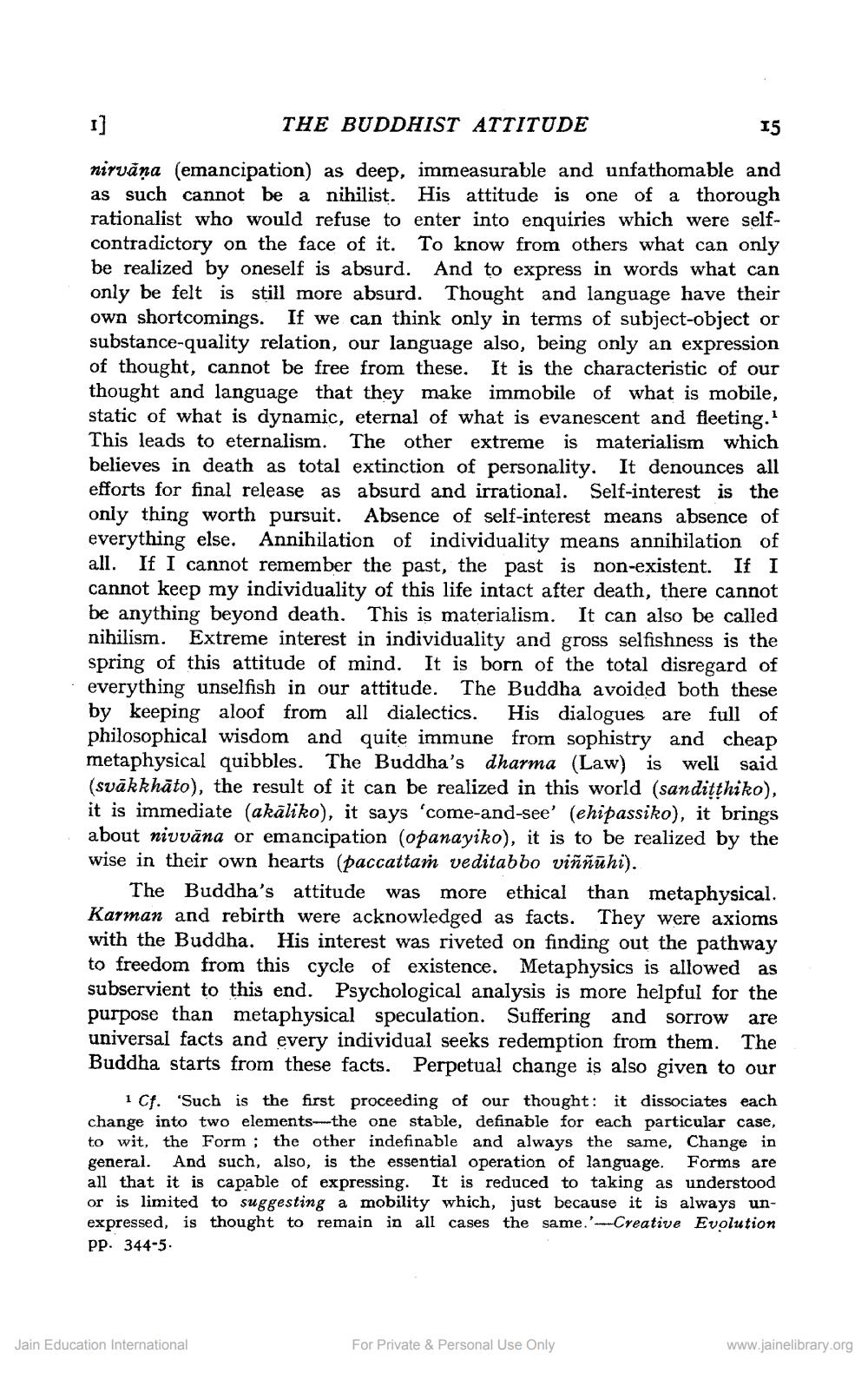________________
THE BUDDHIST ATTITUDE
nirvăna (emancipation) as deep, immeasurable and unfathomable and as such cannot be a nihilist. His attitude is one of a thorough rationalist who would refuse to enter into enquiries which were selfcontradictory on the face of it. To know from others what can only be realized by oneself is absurd. And to express in words what can only be felt is still more absurd. Thought and language have their own shortcomings. If we can think only in terms of subject-object or substance-quality relation, our language also, being only an expression of thought, cannot be free from these. It is the characteristic of our thought and language that they make immobile of what is mobile, static of what is dynamic, eternal of what is evanescent and fleeting. 1 This leads to eternalism. The other extreme is materialism which believes in death as total extinction of personality. It denounces all efforts for final release as absurd and irrational. Self-interest is the only thing worth pursuit. Absence of self-interest means absence of everything else. Annihilation of individuality means annihilation of all. If I cannot remember the past, the past is non-existent. If I cannot keep my individuality of this life intact after death, there cannot be anything beyond death. This is materialism. It can also be called nihilism. Extreme interest in individuality and gross selfishness is the spring of this attitude of mind. It is born of the total disregard of everything unselfish in our attitude. The Buddha avoided both these by keeping aloof from all dialectics. His dialogues are full of philosophical wisdom and quite immune from sophistry and cheap metaphysical quibbles. The Buddha's dharma (Law) is well said (svākkhāto), the result of it can be realized in this world (sanditthiko), it is immediate (akāliko), it says 'come-and-see' (ehipassiko), it brings about nivvāna or emancipation (opanayiko), it is to be realized by the wise in their own hearts (paccattam veditabbo viññühi).
The Buddha's attitude was more ethical than metaphysical. Karman and rebirth were acknowledged as facts. They were axioms with the Buddha. His interest was riveted on finding out the pathway to freedom from this cycle of existence. Metaphysics is allowed as subservient to this end. Psychological analysis is more helpful for the purpose than metaphysical speculation. Suffering and sorrow are universal facts and every individual seeks redemption from them. The Buddha starts from these facts. Perpetual change is also given to our
1 Cf. 'Such is the first proceeding of our thought: it dissociates each change into two elements--the one stable, definable for each particular case, to wit, the Form ; the other indefinable and always the same, Change in general. And such, also, is the essential operation of language. Forms are all that it is capable of expressing. It is reduced to taking as understood or is limited to suggesting a mobility which, just because it is always unexpressed, is thought to remain in all cases the same.'-Creative Evolution pressed in touch to main in
a Pp. 344-5.
Jain Education International
For Private & Personal Use Only
www.jainelibrary.org




